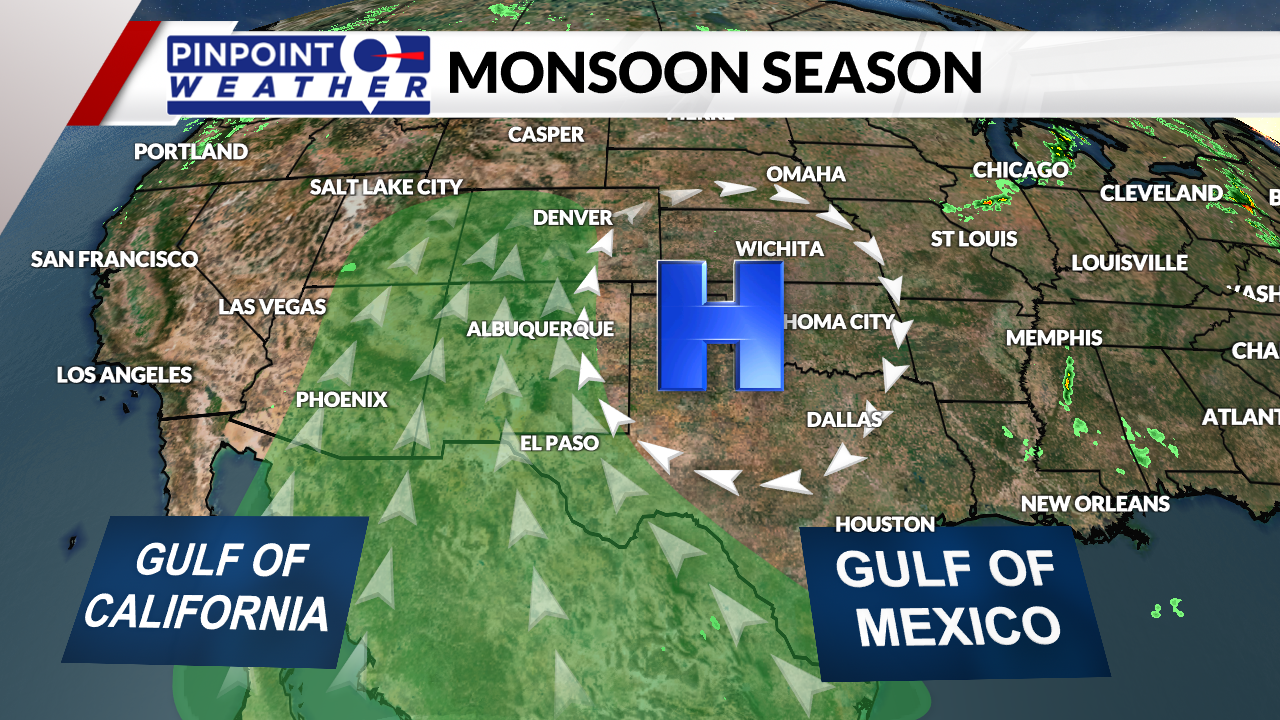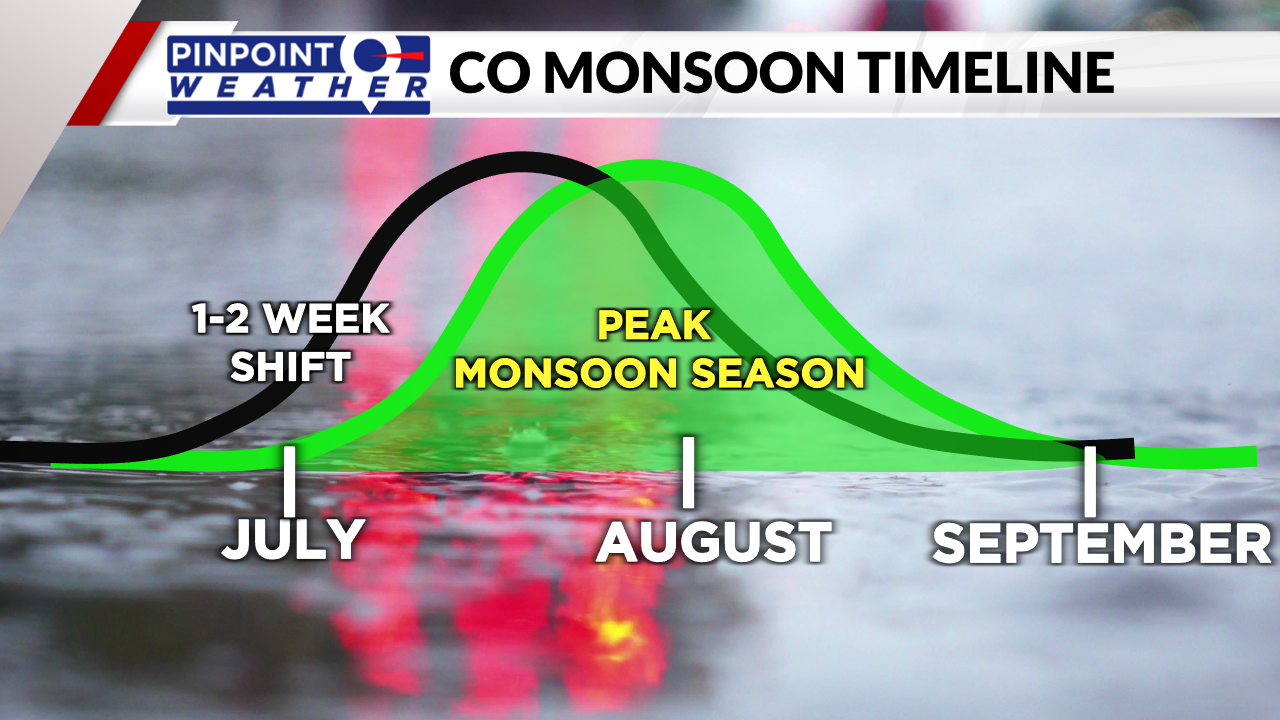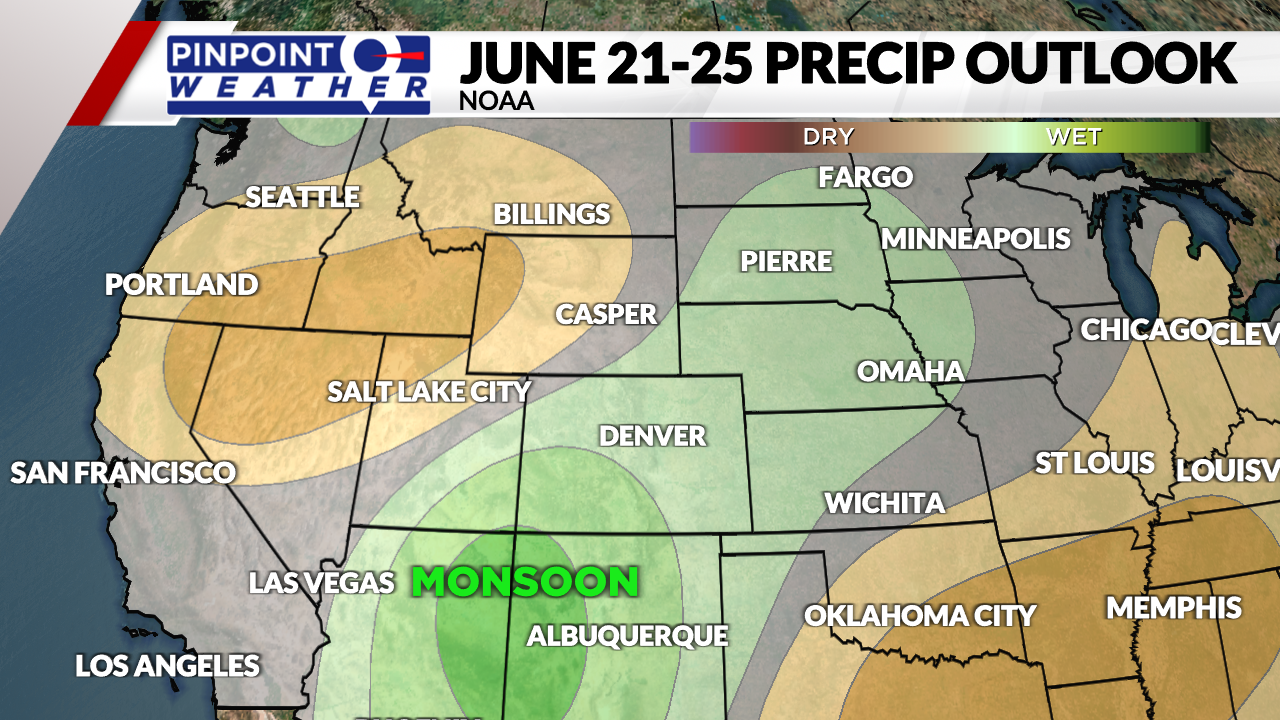DENVER (KDVR) — The Pinpoint Weather Team says Colorado is in for a monsoon season preview this weekend.
Normal monsoon season in Colorado runs from July through August.

What is monsoon season?
Meteorologist Chris Tomer said the atmospheric pressure pattern shifts and opens the door for new moisture. This moisture flows into Colorado via southerly winds.
It makes afternoon rain and thunderstorms more likely, especially over the mountains. Lightning is more likely during monsoon season along with brief heavy rain that could result in flash flooding. During peak moisture surges, overnight and morning rain are also possible in the mountains.
Pinpoint Weather Meteorologist Chris Tomer says there are several signs of being in a building electric field and at risk of being struck by lightning, including feeling raised hair and hearing a buzzing noise.
In order to maximize your chances of surviving a nearby lightning strike, you need to seek shelter immediately, according to the NWS.
- Locate safe shelter or an automobile to wait out the storm.
The following put you at a higher risk for being struck by lightning:
- Hiding under trees
- Hiking above treeline increases your risk.
- If safe shelter is not an option then your goal is to get low.
The NWS says that based on data since 1980, lightning causes 2 fatalities and 12 injuries per year in Colorado.

The moisture Colorado receives during monsoon season is critical. Without it, like in 2020, the risk of wildfires increases into fall.

Pinpoint Weather Team Meteorologist Chris Tomer said this weekend’s moisture surge could signal an early start monsoon season in Colorado by one to two weeks.
According to research, a strong La Nina correlates with a stronger monsoon season.
According to the Colorado Climate Center, a La Niña summer in Colorado typically leads to above-average temperatures for the eastern half of the state.
Be sure to download the free Pinpoint Weather App to stay up-to-date with the newest data as it comes in.


